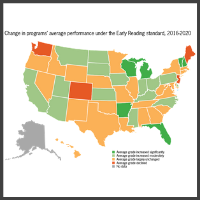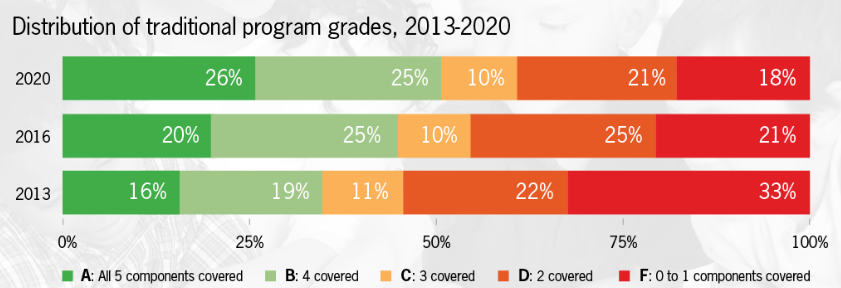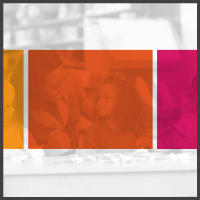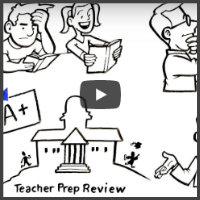While all first-year teachers still have to learn on the job, hiring teachers from strong teacher prep programs can mean that they start with a firm grasp of the essentials—particularly in early reading instruction. Reading is the gateway to educational achievement and lifelong success, especially for students who face seemingly insurmountable social and economic barriers. Unfortunately, not all programs offer the same quality of preparation, so it can be hard to know which ones are adequately preparing aspiring teachers in the science of reading without a lot of trial and error.
Fortunately, there is a strong body of research on what makes for the most effective reading instruction. Over the past 60 years, scientists from many fields have studied the methods most likely to yield the highest numbers of successful readers, with research involving tens of thousands of children and adults. In 2000, the National Reading Panel—convened by Congress and the National Institutes of Health—led an exhaustive review of more than 100,000 reading studies and generated incontrovertible evidence of what is effective in terms of reading instruction.
Specifically, they identified five critical components of reading: phonemic awareness, phonics, fluency, vocabulary, and comprehension.
If teachers were genuinely armed with these scientifically-based reading methods, we could reduce the current rate of reading failure from 3 in 10 children to fewer than 1 in 10 children.88
Over the last decade, NCTQ's Teacher Prep Review has evaluated undergraduate and graduate programs and identified those that successfully prepare future elementary teachers in the science of reading. Today, just over 50 percent of elementary teacher prep programs cover at least four of the critical components of reading instruction, representing significant progress since 2013, when only 35 percent of programs earned this distinction.
What school districts can do
Every elementary teacher wants to be a top-notch reading instructor, and we need to make certain they have the tools to succeed in the classroom. To further expand the map of programs that teach scientifically-based reading instruction, universities need to hear from leaders and educators in the districts they aim to serve. Superintendents and principals are well positioned to have frank conversations with their university partners about what their teachers need to know about reading. And until every elementary teacher prep program prepares their graduates to teach reading, schools may prioritize hiring teachers from programs on the reading science bandwagon.
 See the Early Reading Instruction grades for teacher preparation programs in your state by using the "Advanced Filter" function on the right hand side of the Teacher Prep Review Database.
See the Early Reading Instruction grades for teacher preparation programs in your state by using the "Advanced Filter" function on the right hand side of the Teacher Prep Review Database.
Read the full NCTQ summary of findings to learn more about the research on issue and to see top-performing programs across the country, including exemplar resources.
Watch a short explanation of the NCTQ methodology for the Early Reading Instruction standard, or go deeper into the methodology and scoring.



